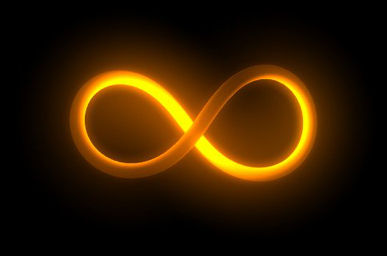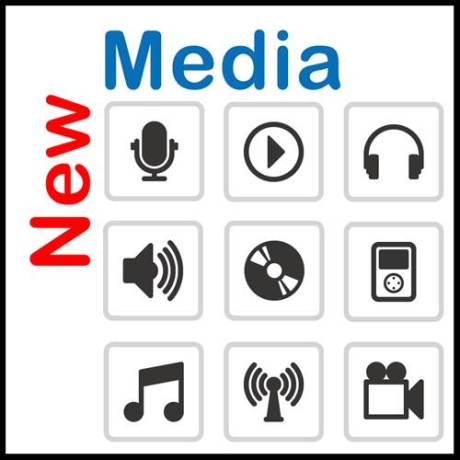My goal with this post is to create a compelling argument for a valid definition of a web series…
read on.
As a member of the IAWTV (International Academy of Web TV), and as an artist spawned from the beastly new media womb in general, there has been a lot of discussion over what constitutes a “Web Series”.
Since we’re all cowboys in the digital Wild West we have the ability to design how the future will view new media projects. Many want to set parameters which, in a way, rob us of the spirit of possibilities the web promises; yet they’re simultaneously necessary when trying to monetize this budding industry.
Lets address some of these parameters…
- Series length
- Episode length
- Studio vs Independent
- Original Distribution Platform
- Format
SERIES LENGTH
Its important to define the word “series” here.
se-ries
–noun
“a number of related things arranged or occurring in succession.”
 By definition a series is as many as “infinite” and as few as “two.” Some may object that a series could consist of as few episodes as two but unless we have a good reason to define another number I don’t see why we should set a boundary.
By definition a series is as many as “infinite” and as few as “two.” Some may object that a series could consist of as few episodes as two but unless we have a good reason to define another number I don’t see why we should set a boundary.
It was suggested at one point to define 6 episodes as the minimum to warrant a “created by” credit. I argue that this is arbitrary and unfair. What if a show had 5 twenty minute episodes- does that mean no one deserves the “created by” credit? So why not make 5 episodes the minimum? Then again, what makes 5 so much more valid than 4? Admittedly, it gets increasingly more ludicrous as we descend but again, why not 3…?
Which brings me back to the very definition of a series being at least 2 episodes long. I really don’t think we should redefine this area unless we have a compelling reason to do so.
EPISODE LENGTH
TV episodes are mandated due to advertising and range from either 22-30 minutes or 44-60 minutes depending on the advertising needs of the network or cable station.
The web has no restriction because there’s no reason to constrict what is possible at this point. A few years ago some important suit-wearing executive at some important company decided that attentions spans of laptop viewers should be around 3-5 minutes per episode.
Over time this has increased as its proven that people are willing to watch features on their phone; literally, 2 years ago an agent at UTA laughed at that ever being a possibility.
When we distributed The Bannen Way on Sony’s Crackle site, they were mandated to keep the episodes under 7 minutes because they would have to insert a commercial otherwise. I don’t believe there was any minimum but we aimed to keep them between 5-7 minutes.
The Independents don’t have to answer to advertisers, so if it makes sense creatively for their story-lines to be 45 minutes in length, who’s to prevent them from trying it out. Which brings me to…
STUDIO vs INDEPENDENT
We got some heat for Bannen because it was a “studio” project. As this was my foray into directing I didn’t see myself as part of the “Big Bad Monster” that many envisioned Sony as for trying to swoop in and dominate the web.
 I think there will always be a place for Independent projects on the web, by the sheer nature that anyone can post something on the web and be their own distributor; but I don’t think we should refuse the potential for creating an industry out of this medium. We need money to do that. Whether that capital comes from a studio- or investors- or your little sister’s piggy bank [dick] makes no difference.
I think there will always be a place for Independent projects on the web, by the sheer nature that anyone can post something on the web and be their own distributor; but I don’t think we should refuse the potential for creating an industry out of this medium. We need money to do that. Whether that capital comes from a studio- or investors- or your little sister’s piggy bank [dick] makes no difference.
All revenue models should be welcomed. Even if an official web format surfaces due to advertising money that still doesn’t hinder you from picking up your camera and throwing a video of you getting kicked in the nuts on the web- unlike TV and Film where you have no access unless you have a ticket into the party.
ORIGINAL DISTRIBUTION PLATFORM
Sometimes web series originate on the web and later that same material is repurposed as a feature or as episodes of a TV series…
 And sometimes its the other way around. The hot scam right now is arbitrarily cutting up features and throwing them into bite size chunks to be consumed on the web.
And sometimes its the other way around. The hot scam right now is arbitrarily cutting up features and throwing them into bite size chunks to be consumed on the web.
I’ve heard objections in both direction from purists who want to keep web projects within “web jurisdiction”. But whether you like it or not- how can you say a feature film that is cut up into a web series isn’t a web series. It may piss you off but it is what it is.
When creating The Bannen Way, since there was no limit to the number of episodes allowed on the web, we decided to structure our series as a feature, in hopes we could justify getting a larger production budget since we could potentially sell the project on DVD. It worked- Sony was willing to take a risk on what has now become a standard new media model.
Would I classify our project as a web series- or a feature…?
The answer is both. We shot and edited it as a feature first (for obvious budgetary reasons) but we distributed it as a Web series first. Since it premiered on the web I think it clearly classifies it as a Web series whether or not it eventually became a feature film.
How could a web series retroactively be disqualified as a web series because it was later distributed in other ways?
FORMAT
There are many types of entities that exist on the web. The Streamy Awards recognize live-action, documentary, hosted, animated, etc. But why not dating, shopping, or photo sites…?
There are two obvious answers: there’s no “narrative” or “video” quality to these entities. We could argue semantics further by pointing out the video elements to shopping sites or dispute how narrative a hosted news show is.
When we break it down Format seems like a gray area. To further prove this point, I’d like to offer another sacrifice for the alter… “gaming”
 True, there’s no way playing Solitaire or Words with Friends should be considered a web series- lacking narrative and video, among other, obvious qualities. But then again… what about “video gaming”? There’s definitely a narrative story inherent in any single player campaign these days- arguably more intricate and nuanced than many Hollywood movies. So why disqualify online Video Games from being a web series?
True, there’s no way playing Solitaire or Words with Friends should be considered a web series- lacking narrative and video, among other, obvious qualities. But then again… what about “video gaming”? There’s definitely a narrative story inherent in any single player campaign these days- arguably more intricate and nuanced than many Hollywood movies. So why disqualify online Video Games from being a web series?
Right- because of that word- “Series”. Lets assume we’re not satisfied with World of Warcraft 2 suddenly becoming a web series because two related things are strung together. But what if someone created a narrative video game where you could play through a storyline, online, in 3-5 minute increments…? And what if tomorrow there would be another “episode” that you could play through? Does that not qualify as a web series…? Why not…? Because its too interactive?
In order to settle this ongoing debate I think we need to first establish the guideposts- the unchanging structure that everyone can agree on- and build from there.
For the sake of argument, I’m going to assume everyone is okay with two components…
- Web
- Series
WEB
The term “Web” potentially refers to two things.
- How content is consumed
- Where the content originated
Content Consumption: If you’re watching a video on your computer, iPad, or mobile phone and you’re connected to the web there’s a god chance its a web series… but not necessarily. You can download a feature on the web and watch it on your iPad. You can also watch “web content” on your television these days.
So I’m going to have to disqualify this definition, and move on to…
Origination of Content: If you’re watching a series that originated on the web there’s a good chance its a web series. I don’t see any way to dispute this. Even if the same material becomes a feature film, if it was broken up into episodes on the web first its definitely a web series.
SERIES
I already defined series as “a number of related things arranged or occurring in succession.”
This, to me, means 2 or more. Period.
With everything considered…
And until we have a compelling reason to think otherwise…
In the spirit of creating a fair classification of a web series, I propose this simple definition…
“A Web Series is… 2 or more related episodes of video content that originate on the web.”
~ JW
41 Comments
Comments RSS TrackBack Identifier URI





I learned 2 things today. 1. What a Web Series is. 2. You have a blog.
Perfection. Thanks for doing this, Jesse!
Great post! I agree that it’s a good definition that really works.
But I wouldn’t be me if I didn’t play Devil’s Advocate at least once a day…
So one question I have…”related episodes of video content” – Are the stand-alone episodes of Black Box TV related in a way to fit in that definition? The Twilight Zone was clearly a television series even though each episode stood on its own. Does the concept of “related to” simply mean there’s a common element in the release, whether it be Rod Serling, a dark dramatic storyline, or a personality smiling at the camera?
For the record, I think Black Box TV does fit in that definition.
Bah! My question is silly. Great job defining this well, Jesse
I wish I could aid you in your penchant to play Devil’s Advocate, but it seems we’re in agreement on Black Box TV. =)
As you said, Twilight Zone has “unrelated” individual stories but they’re threaded together by their genre and all clearly hosted by the same creepy guy.
What I don’t think constitutes “related” is a Network of shows. You can’t say “Modern Family” and “No Ordinary Family” are related because they’re both on ABC or because they have the word “Family” in them. My definition doesn’t specifically clarify this but I hope there is some logic used in classifying something like that.
…and yes, that was also a shameless plug for my wife’s show. =)
You can watch Autumn Reeser every week on No Ordinary Family…
ABC, Tuesdays – 8PM
Now THAT is brilliant. LOL
Excellent, concise definition supported by compelling points clearly supported by an intimate knowledge of the subject matter.
Me likey! 🙂
:):):)
“A few years ago some important suit-wearing executive at some important company decided that attentions spans of laptop viewers should be around 3-5 minutes per episode.”
— this is simply a re-write of history and totally inaccurate. The first web series from the indie community were short by nature. The “suits” are the ones who are trying to convince us that shows should be long, but the only way they can get views for many longer shows is by buying/fraud views and spamming the web with autoplays. Now it is true that TV content on the web is longer but those already have an established viewership. For those who want to grow an audience organically there is a significant competitive advantage in short form content……particularly in the mobile arena.
Thanks for your thoughts. We’ve shared a few interactions in the past as well. =)
My quote about the executive deeming web episodes as 3-5 minutes wasn’t meant to be taken quite so literally. I realize that naturally episodes originally came in shorter times- probably due to bandwidth issues I imagine.
With that said, I certainly ran into “suited resistance” on the idea of making episodes longer a few years back. In my direct experience, that ideology changed over time. Now it seems there are various strategies when it comes to episode length. Only time will tell if any one economic model reigns supreme.
~ JW
Any “suit” that works in the realm of web series, probably doesn’t even wear a suit 😉
Great write-up – totally agree (and how can you not when it’s all spelled out for you).
So instead of making an 8 or 10-episode first season, I should’ve just broken my series up into 4 or 5 seasons. And then we could’ve broken the prevalent trend of the One-Season Web Wonders. Wish I woulda thought of that earlier…. 🙂
Solid piece man!
This is a very well thought out definition. I personally have a problem with the term “web” though, because I think it’s a bad idea to define what we do by a technology. Technologies change rapidly and come in and out of favor. Using “web” as a descriptor I think is just as bad as using “pod” as a prefix for everything five years ago when podcasting was the rage. Using the term web helps us now because most people think of internet video as a video on a web page, like YouTube, and that helps explain it to newbies, but I don’t think we want to limit ourselves to that. What we do is video and that is the primary concern. Our video is not just content for a web page. I know you’re not saying web series’ are content for web pages but that’s what most newbies will think of if we use the term “web series.”
I think the descriptor needs to be broader and include iTunes, Xbox and perhaps even Netflix streaming. Consider that your definition excludes “The Guild” from being a web series because it originates on Xbox and in the Zune marketplace and comes to the web later. Personally I’m not sure what the terminology should be. Right now I like “online video series” but my favoritism comes and goes. The word “online” appeals to me because it sounds more action oriented where “web” seems more static.
I’m glad people are discussing all this instead of what happened back in the podcasting days where everyone just accepted Steve Job’s definition.
Thanks for your thoughts Eric.
I don’t necessarily think “web” is the best word to use either, but it seems to have tuck- at least in my immediate community and within the IAWTV. So I’ve been working off the phrase “web series” strictly because of that.
You bring up an interesting point about using a web to define a technology. But isn’t TV a form of technology? Maybe you object to that definition as well; but its the popular culture that ultimately makes things stick by repetition. Also, more to your point about how technology changes, we use the term “Film” but a lot of theatrically released projects are shot digitally but are still referred to as films. Maybe we should go back to calling them “Talkies.” =)
I think you might be right about the definition including iTunes, Xbox, Netflix,etc. Or maybe we create another category called (not right, but just off the top of my head for sake of argument) “Platform series” (again, I’m not proposing this- I’m just giving it a name) to encompass that distribution method. And then we reserve Web Series as premiering on the web. THEN, we come up with another term to describe all these short-form projects that include (as you mentioned) the idea that these are all digital projects…
I would also like to point that I don’t think we should limit ourselves by saying “What we do is video”? Why can’t someone shoot something on film and release it on the web. Or maybe you don’t mean to say that everything has to be video but your excluding things that are, say, projected into a movie theatre. But then again, TV becomes a form of video. [This just gets more and more complicated]
The other thing is, didn’t the guild originate on the web before they started “originating” on xbox? Correct me if I’m wrong, but it was established on the internet first, right?
I think I agree with using the term “online” or something similar, because that can encompass the outlets you mentioned above.
thanks Eric.
“The Guild” episodes hit the web (via MSN) the same time as they go up on Xbox Live and Zune Marketplace, so it still fits Jesse’s definition. The episodes appear on YouTube later, which is (I believe) where this misconception that it’s only on Xbox comes from.
Great post and interesting discussion you’ve started, Jesse (et al).
Yes, TV is a form of technology and I’m not opposed to it but the term has a lot less relevance than it used to when it was a lot easier to define content by it’s distribution technology. The coming of cable TV diluted the meaning as did VHS and DVD distribution after that. Now with digital it’s just a big mess and things like Dr. Horrible show up in the TV Show section of iTunes even though it was never on TV. The term TV show is going to continue to be around because it has a history and that history has meaning. Trying to define new content right now based on the old shorthand of technology and distribution equal content is an uphill battle because the technology and the distribution is constantly in flux and there’s no commonly understood historical meaning.
What I meant by the term Video above is simply a description of what the product is (moving picture with sound) as opposed to how the show was shot or finally presented. I think any descriptor needs to have at it’s nugget an explanation of what the product actually is. It’s the only chance we have of trying to explain it to people not in the industry and having it stick. I don’t think Web Series provides that anchor to the product. It could actually mean anything to those who don’t already know what you’re talking about. Video is problematic as a word though because it can describe so many different things like VHS, computer monitors, NTSC, etc. but it’s the best thing I can think of at this point.
I was under the impression that The Guild originated as a podcast. That’s how I discovered it. That probably meant that it was also watchable on their website as a quicktime file. I could be wrong about that though.
It was not even bandwidth. It was not youtube time constraints. It was quite simply that it worked very very well. Just look at the following developed by lonelygirl15. Look at the fan involvement. Look at the level of interaction. In every level that the web offers “short” worked.
That is not to say that those who prefer TV should not produce TV on the web….but call it what it is…..TV……which is simply not a web series no matter how many try to twist and take ownership of the term web series. Why don’t you call your long form content web television and leave the term web series for people who are trying to produce this new form of entertainment on the web?
I am not saying that all web series will be short. What I am saying is that a true web series is inherently different from traditional TV. It has a different DNA. It is web native and its social. Now over time traditional TV may graft on some of these values but that is a story for another day.
Also “web” refers to World Wide Web…….which means it should NOT be geoblocked because then it is not on the World Wide Web….
So, perhaps you should begin by getting your fellow IAWTV members to reverse their endorsement of geoblocking because it is an abomination of everything the World Wide Web stands for.
Sometimes geoblocking is necessary for business. For example, many US TV shows are available on Hulu, but only accessible to viewers in the US. This then allows the producers/studio to shop around to air the show on networks outside the US. “Why buy the cow when you can get the milk for free?”
This isn’t necessarily how I, personally, would conduct my business… I’m just playing devil’s advocate to illustrate the point.
It may be “necessary for business” and that is a choice the creator needs to make. However DO NOT pretend to be on the web if you are not on the web. Geoblocked content is on a regional distribution network…it is simply NOT on the World Wide Web.
For the IAWTV to endorse something that goes against everything the World Wide Web stands for is simply unconscionable. It is disappointing that a group that purports to support an open internet would not see the damage that is done by geoblocking.
I think there is an inherent problem in our society in thinking that whatever the original intention is in creating something that we absolutely need to stick to that.
I agree with Casey in the case she pointed out from a business standpoint- and as far as I’m concerned it should apply to everything that surrounds us.
“with necessity we can alter intention.”
I say who cares if “www” stood for world wide web. If there is a budding industry then maybe we should embrace it. I’m sure we can come up with a lot of reasons to keep it as a worldwide free access entity but I certainly DO NOT think we should adhere to three letters (www) because of its original intent when it couldn’t possibly imagine all the future dynamics that go into it.
This is the same dangerous thinking that led Christians to hold on to the idea that the world was flat because the bible said so- despite compelling evidence from Galileo and Copernicus.
Before I turn this into a religious debate I ask that we just take into consideration, not only where something COMES FROM, but also where it CURRENTLY STANDS and where it could POTENTIALLY GO.
“This is the same dangerous thinking that led Christians to hold on to the idea that the world was flat because the bible said so- despite compelling evidence from Galileo and Copernicus.”
– quite the reverse. It is the adherence to WWW standards that has kept the web open from the types of corporate interests that would twist and manipulate it to the benefit of their own profit.
If traditional TV wants to use geoblocking to create their own reginal networks that is their prerogative but please do not pullute and contaminate the WWW and the abreviation “web” with the notion that such censorship is part of the World Wide Web. It is simply not…..so use your own term for it…….but don’t full yourself into thinking you are on the World Wide Web when you are NOT.
Geoblocking damages the fabric of the web. It leads to confusion in the marketplace. It damages brands. So yea, use this antiquated distribution model at your own risk…..but realize that in doing so you spit in the face of the platform that made this all possible…..and please, do not call it the “web”.
Jesse —
A thoughtful deconstruction and analysis of a notorious gray area. And I agree with almost everything you’ve laid out here, with one key exception: that the content originate on the web. Case in point is one of my Electric Farm shows — Valemont. With that show, we actually used on-air to promote online. Towards that end, the first 12 episodes actually aired on MTV, setting up the next 25 episodes that aired exclusively on MTV.com. But make no mistake, Valemont was conceived, sold, funded and universally considered to be a “web series.” Which means we can either make one of those troubling “exceptions to the rule” that regularly undermine the scientific community when quantum particles don’t abide by the law of physics… or we can admit that one of the primary tenets in your classification may need to be reconsidered. Demonstrating further that a “web series,” by its very definition, is as expansive and ever-changing as the platform on which the content lives.
— Brent Friedman
PS – Never knew you had a blog but glad I found it!
I wonder if this is a question that’s something along the lines of the “I know it when I see it” phenomenon. Making a definition of what we’re doing that can encompass all of the permutations is probably akin to defining art or understanding how quantum entanglement affects space AND time. Whoa.
Thanks for chiming in, Brent!
As I wrote the final sentence of my blog I had a problem with the idea of “originate on the web” because of the things I mentioned earlier in the blog about how you can’t deny, like it or not, that a feature film cut up into pieces and released on the web is a “web series.”
I continued with that term “originate on the web” because I wanted to address the issue of what should be considered a web series for something like The Streamys. A lot of people have a problem with the idea of Christopher Nolan cutting up Inception and sweeping the awards. This is where the idea of it originating on the web becomes important.
You bring up a great point about Valemont. A beautiful gray area that challenges us to rethink our terms in the first place. See my exchange with Eric. I was confining myself to the definition that everyone uses: (“Web Series”)
But I think in my next blog will analyze what it should really be called.
thanks for your thoughts, Brent!
~ JW
I thought this argument had been settled already.
MM touched on the old conflict between web series and web television. Web series (at least it used to) referred to a new and unique way of telling a story as different as television is from film. Web television refers, on the other hand, to a means of distributing content. However, the argument is mostly moot at this point. Most ‘web series’ are conceived, shot, and consumed like television. “The Bannen Way” is a perfect example, in that it looks exactly like television. There is nothing wrong with web series looking like television, people seem to like television, it just doesn’t have the unique aspects that made web series special.
Lastly, with the inevitable shift of more and more original web video being viewed through set top boxes, the need to differentiate becomes as significant as the separation between broadcast and cable television. Certainly, there are some differences, but they are small and not really of great importance to the viewing public.
I tend to agree. The great thing about the web as a distribution platform is that it does give content creators the ability to push the boundaries of interactivity and storytelling. As set top boxes and streaming becomes more ubiquitous, those lines differentiating the two will probably get less and less clear. Browsers on TVs and apps that aggregate content are continuing the change the landscape and making some of our old discussions… well… a little old
I hope the difference between “web series” and “web television” becomes MORE clear, not less clear over time. That is up to the creativity of the web series community to achieve.
Ironically the IAWTV seems to favor the term “web television” in their by laws which may suggest they prefer to take the more traditional approach to entertainment. Hopefully others will pick up the mantle and make “web series” all that they can be.
I’ve been hoping that for a while, sadly it looks like folks are more interested in the distribution advantages of the web and not the opportunity to create a different way of telling a story.
I suspect there are a vast amount of people who are interested in both- myself included.
I’m interested in “both” too but I’m not sure it’s an either-or thing. There are many new things yet to be discovered. Everything’s wide open. And the old ways aren’t forever old. The old has a way of becoming the new.
That’s just another way of saying that I think new-media isn’t a new medium. It’s what old-media is becoming. We just got there first.
Thanks for your thoughts, Mathieas.
This argument was settled? Who put their foot down and set it in stone? Why are people still confused? What should be categorized as a web series?
MM definitively said it wasn’t bandwidth issues nor YouTube time constraints that defined the short lengths of web series. I think its a mistake to assume that there weren’t MANY factors as to why they were short, including but not limited to, his explanation that it “worked very well”. I happen to have a friend who released a “web series” years ago- before anyone was capable of consuming the material- and he absolutely was limited by bandwidth; which isn’t the only reason he kept them short but again, a factor not to be ignored.
Back to your point, I don’t think saying a “Web Series” is a “new and unique way of telling a story” helps us clarify what should be considered a web series.
I also don’t see how The Bannen Way (as it was shot) is likened to TV. While I ultimately think it should be a television series, it was
a) conceived as a web series AND a feature; a 3 act structure broken up into smaller self-contained pieces originally for the web…
it was…
b) shot like a feature, then edited as a feature. Then we went back and into it and cut it into a web series.
it was then
c) consumed on the web, then distributed on DVD as a feature. It has appeared on TV but in feature form.
If you want to argue that it looks like TV, I would say… “thank you?” and then tell you that it wasn’t intentional. We shot on the red camera and I was simply trying to tell a story. If it looks like television then great but I still would say it was consumed like a web series or feature before TV.
FInally, I would agree that there probably is a need to differentiate between the multitude of ways web video is consumed, but I would argue that while some people may not care about defining these differences, there are others who do care. Ultimately a proper definition may help the public conceptualize all the potential aspects to this new medium; and proper definitions help guilds, awards, broadcasters, etc which is good for establishing a new industry.
[…] Powell Best definition of "What is a web series?" I have seen (by @Jesse_Warren) https://jwarrenpiece.wordpress.com/2011/02/09/what-is-a-web-series […]
[…] This post was mentioned on Twitter by Jenni Powell and UnleashVideo, Liam. Liam said: RT @unleashvideo: Good analysis! RT @spidvid: What Is a Web Series? http://bit.ly/fZ7hHg #webseries […]
Here is a good post from Miles Beckett that touches on the origin of the web series…
http://inside.lg15.com/2010/04/12/the-streamys-let-us-all-down/
“They were experimenting with the interactive nature of the internet and learning as they went. Shooting things quickly, putting them online, listening to the community, processing their input, and publishing something new that could only exist because that community chose to respond. This was not television. It wasn’t film. This was something new.
Now I do not agree with everything that Miles says as anyone can attest…..but he does make a number of good points. We have come a long way since that was posted with the development of transmedia etc. but the point is that we need to look forward…. not backwards to the antiquated TV industry for our model.
Each one of us should recall how you define it at parties or family gatherings. “What do you do?” or “What line of work are you in?” Your answer probably has morphed into different things over the months and years until you are most comfortable with the answer delivering it to someone who either has heard of a web series or, sadly, one who hasn’t.
In order to convert the masses out there who haven’t heard of a web series, you have to explain it and compare it to something they know…TV. We, on this blog and others, are very tech savvy and in the entertainment industry.
Most people are not and they are the ones who are watching even more television. Yes, an increased number of people are watching “stuff” on the internet and mobile devices…yes, an increased number of people are chord cutting…but television viewership is also increasing. This is what they know.
When I come across someone with a blank stare….aunts and uncles….I just say it’s like a TV series, but produced for the Internet and is usually 3-5 minutes. DONE. Then they get it and think it’s so cool.
So I would say a “web series” is best defined by how one can define it clearly and quickly to one who’s never heard of it. (Don’t get me started on trying to explain podcasting)
Moving on, I disagree with the comment that XBOX or Netflix in not “web.” Web is synonymous with Internet and that’s how those devices receive their data. WiFI and 3G data to smartphones is still internet. People know when you say web, it means Internet.
Moving on again, It seems like the same faces chime in on these forums who are mostly involved in the “scripted” web series segment. The real-life, scripted web series segment of online entertainment pales in comparison to all the web series out there that are hosted, reality, interview, documentary, gaming, animation etc., like Jesse touched on in FORMAT.
We can’t have this treehouse “it’s ours, we were here first, but out’ attitude. We shouldn’t chastise the TV studio execs, b/c one day they might want our help.
So, focus your energy on creating marketable content, have fun, and the rest will fall into place.
[…] What Is a Web Series? via jwarrenpiece […]
The problem here is that people mix up “TV online” with web series.
TV online is not just TV content placed online, it is a way of thinking, it is a business model……it is vested in and locked to the past as Hulu shows with its use of geoblocking.
Web series on the other hand are different. They are new. The World Wide Web is in their DNA. They are social, not as an after thought but at its core. The world wide web allows us to create new business models; models which embrace and endorse web standards. It is global and it is powerful. The are interactive by nature. It is not TV with a layer superimposed on it. They are a completely new form factor…….one that continues to explore and define itself over time.
So first you should differentiate between “TV online” and content on the World Wide Web.
from now on i’m splitting my youtube videos in half so i can say i’ve created 100s of webseries.
its all a marketing ploy anyway, if you get eyeballs, who cares if you call it a webseries or a bikini car wash sandwich shop?
[…] before that Nick mentions this article written by J. Warren “What is a Web Series?” Some great points are brought up. We want […]
[…] before that Nick mentions this article written by J. Warren “What is a Web Series?” Some great points are brought up. We want […]